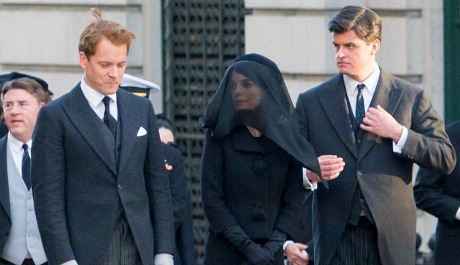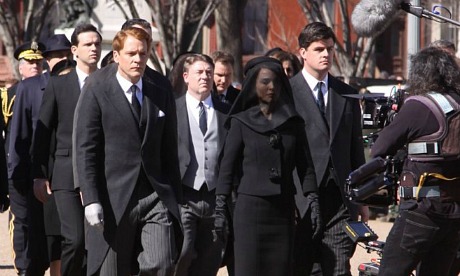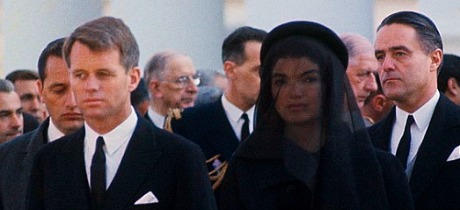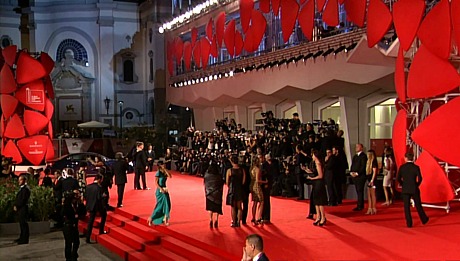If Hillary Clinton doesn’t get a decent bump out of the convention and particularly from last night’s speech, she’s in serious trouble. Hopefully she isn’t. Hopefully her poll numbers will uptick and that she’ll put Donald Trump away in the debates and we’ll be spared an Armageddon scenario, not by a comfortable margin, alas, but by the skin of our teeth. Maybe. I watched her speech last night (replay, not live) and she obviously handled it well. A commendable job. But I was almost fearful of what I wouldn’t see or feel from her delivery and presence, and I had to almost make myself watch it.

Nobody wants this headline to be true more than myself.
The speech was well crafted, and her delivery was good enough and that plus the cheers and those thousands upon thousands of balloons made for a stirring, well organized pageant moment. Hillary has brains, heart, steel and cojones. I’m a Bernie bro, but many — most — of her convictions are my own. But she has no music or poetry in her, and she’ll never strike a magical chord or hit a rhetorical home run with the bumblefucks.
God help us, she’s not what “they” want, and “they” are seemingly convinced that Hillary is indifferent to their economic pain and more particularly is against their cultural interests, and that she’s foursquare on the side of the big social-political changeover we’ve all been witnessing and sharing in over the last eight or ten or fifteen years (weakening of the rural, blue-collar economy plus, as Michael Moore noted a week ago, the growing power of the multiculturals, militant femme-Nazis and LGBTs) and for them it’s curtains for White Guy Rule, and so it’s the Last Stand at the Alamo.
I’m getting a really bad feeling here. I fear Hillary may be John Kerry. I’m sensing those same ’04 cultural vibes, the same “oh, yeah? we’ll show them” resentments.
For the first time in this election season I am really, genuinely scared.
HE’s own Sasha Stone posted the following on Facebook this morning: “This election will be a pure test of whether white males (on the left and right) can get over themselves and vote for the best candidate [regardless of] whether they like her speeches or not, whether they like her body or not, whether they want to sleep with her or not, whether they respect her or not and yes, whether they like her or not.
“The way I figure it is: likability is probably not the best reason to elect someone. TV charisma is an even worse reason. I think back to some of the best presidents this country has had — FDR included — and I think they would never get elected today. So it’s a test. We’ll see just how smart the people who are supposed to have the most power in this country do on this test.”
Read more






